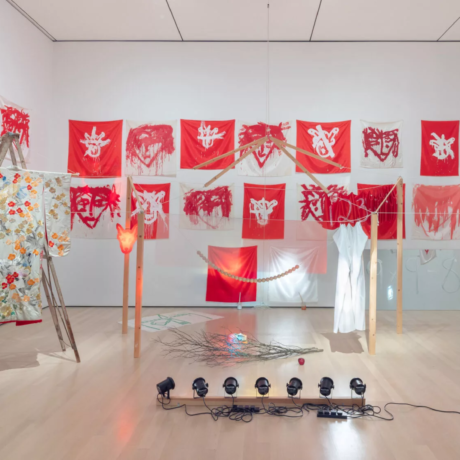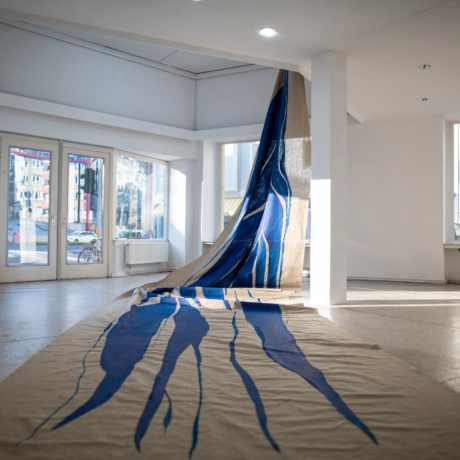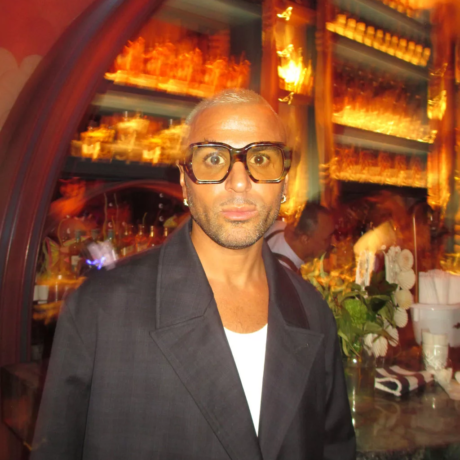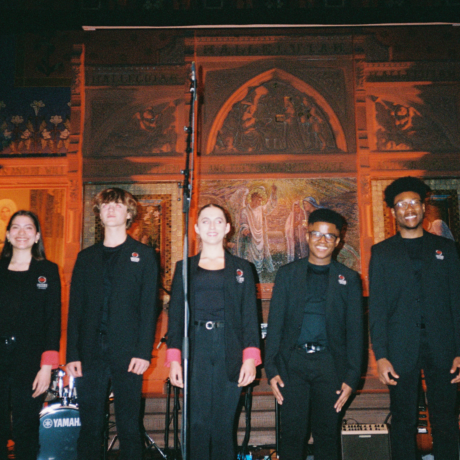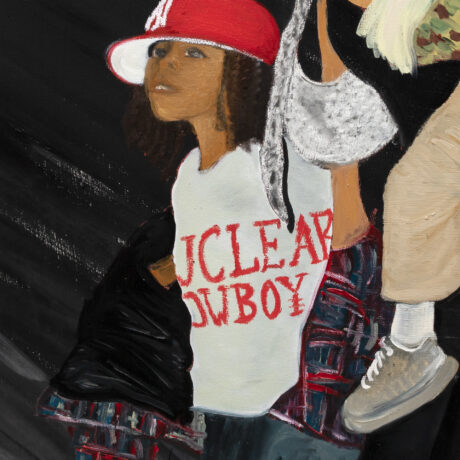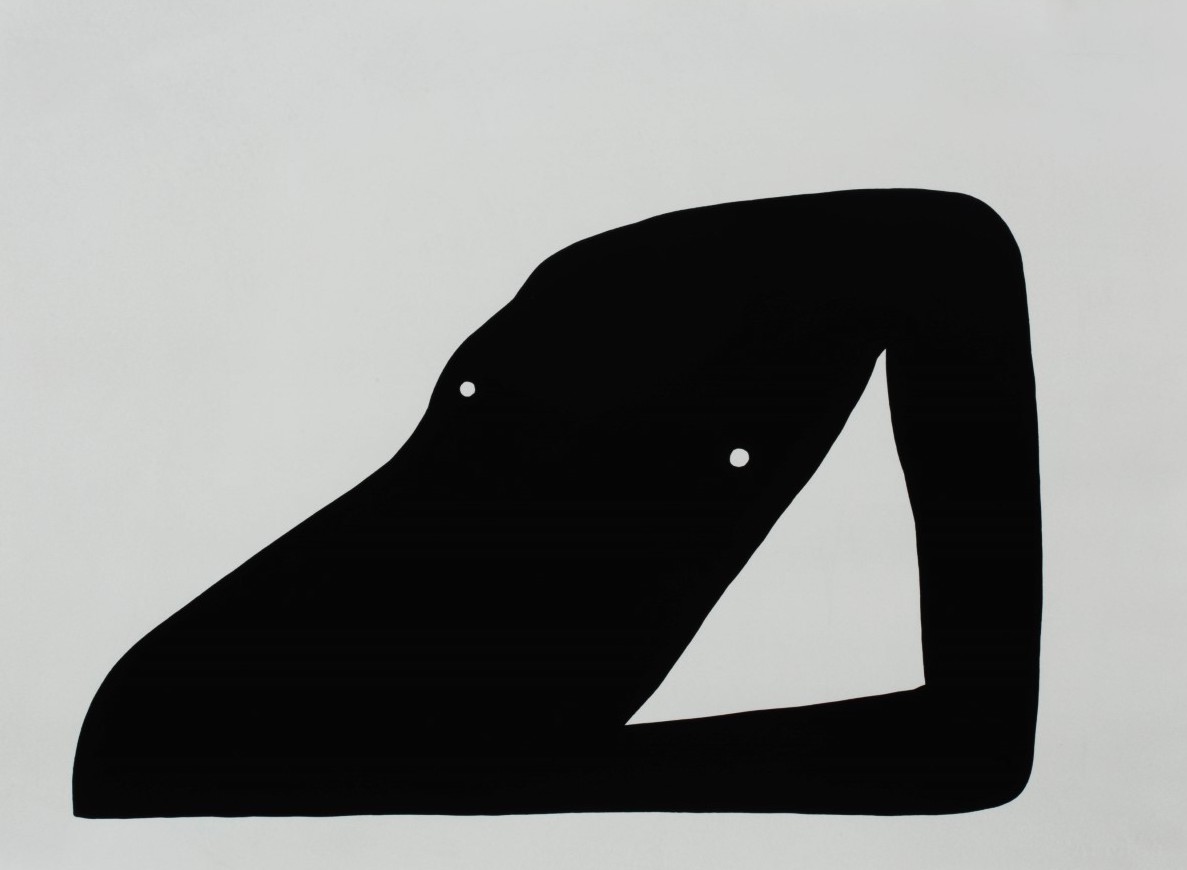
I’ve been thinking lately of endings and beginnings. The art world is reopening as galleries and cultural institutions emerge from lockdown. Following a pause, the system is starting back up all over again. This could be called less a new beginning than a return to the old, but there is an opportunity for change. With a £1.57 billion fund for the arts sector in the UK announced earlier this week, the calls to diversify the industry can surely no longer be ignored; there is a responsibility to rebuild with inclusion, access and equality at its core.
But for many, the emergency support package comes too late. Redundancies have been announced at theatres across the UK, while yesterday Tate began consultation for more than 200 jobs to be lost. The majority of these are among the lowest paid staff at Tate’s galleries, including cleaners and security guards, who also happen to make up some of its most diverse teams. The future remains uncertain, and it is inevitably the big players that will come out on top. This applies both to the hierarchies that govern the internal structure of individual organisations, but also to the power imbalance between institutions at a local, regional and national level. The announcement of the support fund emphasises its aim to preserve “crown jewels” in the arts sector, while the fate of lesser-known venues is still in the balance.
Unsurprisingly, there has been some recent discussion between those working in the arts over what career they might choose if their current livelihood becomes permanently unsustainable. For millions on furlough, they face the bleak reality that they may not have a job to return to when the current scheme ends. A career change at any stage of life is intimidating. Retraining costs money, and starting over could be seen as giving up, but changing direction doesn’t have to feel like failure.
“Starting over can offer a rapid reset option, but quitting doesn’t offer a solution to an industry that is broken”
“There is an art to quitting. Anyone can quit—just unplug, pick up and walk away—but it takes a level of mastery to quit well”, food writer Ruby Tandoh noted last week in a piece on the subversive pleasure of giving up. “I have quit relationships, homes, personalities, religions, friends, holidays, plans, studies and styles, landing every time in the lap of chaos, back at square one”, she describes. Quitting can provide release through a form of escape—that leap into the unknown—although it takes a certain amount of fearlessness to make the jump.
In my short career so far, I have rarely had the confidence to blow it all up and start again. Instead, I have held tightly to every crumb of opportunity that has come my way, even when I couldn’t have been less sure of myself or the work that I was doing. I spent months copying and pasting the archive of a prestigious print magazine for the launch of their website (“digital assistant” sounded glamorous at the time), and stayed up all night copywriting for a brand who sent endless rounds of feedback without ever providing a brief—all for minimum wage. I fantasised about walking out on an editor who bullied and belittled me so relentlessly that I felt physically unwell each morning before work, but I never did.
A recent piece by Connie Wang in Refinery 29 describes some of her own resistance to quitting. She identifies the “Grateful Generation”, or older millennials who were just happy to have a foot in the door. “The 9-5 and Working Girl of our era was The Devil Wears Prada, which taught us that the best way to deal with a bad boss and a toxic workplace is to quit,” she writes. “But, if quitting wasn’t an option—either because we cared too much about our careers or lacked the funds to just stop working—we were supposed to find ways to exist within the broken system, by heeding the unspoken rules, watching our own backs, and privately fixing things when they went wrong.” Now is no longer the time to stay quiet and on the sidelines, nor to walk away from the bonfire. Starting over can offer a rapid reset option, but quitting doesn’t offer a solution to an industry that is broken. The hard work is making change from the inside.
“The status quo is no longer good enough, and the lack of representation in the creative industry feels ever more archaic“
In recent months, there have been calls for those in senior leadership roles at arts institutions to step aside and cede the floor. Some at the top have left under pressure, particularly in the media world, but there is a growing backlash from those in power towards what they call “cancel culture”. A letter published this week in Harper’s magazine, signed by 150 writers and academics, argues, “The free exchange of information and ideas, the lifeblood of a liberal society, is daily becoming more constricted.” It defends free speech, and bemoans “an intolerance of opposing views” and “a vogue for public shaming and ostracism”.
The letter has come under fire, not least for the high-profile status of many of its signatories, which include JK Rowling, Noam Chomsky and Salman Rushdie. When those who have held immense power and privilege for decades are fighting to protect themselves from criticism, what hope does it leave those who have never had a voice at all? By conflating vitriolic online outrage with the increasingly urgent demands from marginalised groups, these public figures betray the same liberal values they claim to champion. Prejudice and so-called “clumsy mistakes” must be called out if real change is to be enacted. The status quo is no longer good enough, and the lack of real and diverse representation in the creative industry feels ever more archaic.
As we begin to emerge from lockdown, there is the possibility of a new beginning. The existing systems of power have been placed under scrutiny, and the former ways of working will not return intact. Sometimes, endings are necessary. I worry that the industry will become even more exclusionary as it narrows and constricts with tighter budgets, while those cloistered at the top remain safe as ever. I also hope that my generation can offer a new mode of resistance, tackling problems together on a systemic rather than an individual level. We can’t give up now.
Are We There Yet is a fortnightly column by Louise Benson. Top image © Amy Pleasant
